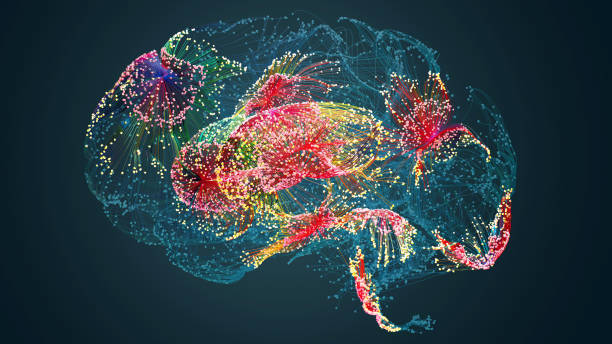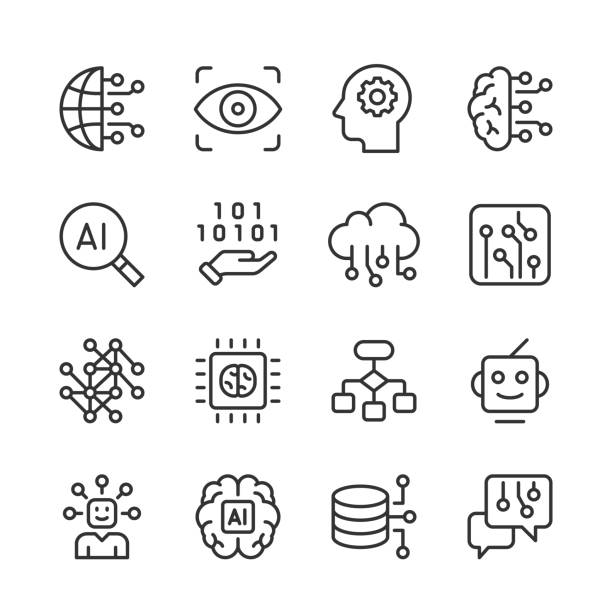In the ever-evolving landscape of artificial intelligence, one component stands out as the cornerstone of true intelligence: the reasoning engine. This intricate machination, far from a mere data processing tool, embodies the fundamental ability to draw inferences, make judgments, and ultimately, navigate the complexities of the world around us.
While the human mind excels at these tasks through a symphony of intuition, experience, and logic, replicating this process within the realm of machines presents a captivating challenge. Yet, through the ingenuity of engineers and computer scientists, a diverse palette of approaches is emerging, each offering a unique perspective on the art of reasoning.

The Rule-Based Approach: A Foundation of Logic
Imagine a meticulous chef following a well-worn recipe, each step outlined with precision. This is the essence of the rule-based reasoning engine. Much like the chef, these engines rely on a predefined set of instructions, meticulously crafted by programmers to navigate specific domains. This approach offers undeniable benefits – efficiency, reliability, and explainability. Each decision is traceable back to a specific rule, ensuring transparency and facilitating debugging.
However, like the rigid constraints of a recipe, the rule-based approach struggles with adaptability. Novel situations, unforeseen circumstances,
or even minor variations in the format of data can throw a wrench into the well-oiled system. As the complexity of the problem space increases, so too does the burden of maintaining and expanding the rule set, ultimately limiting the engine’s ability to flourish in dynamic environments.
Beyond the Rules: Embracing Case-Based Reasoning
Imagine a seasoned cook, drawing upon a lifetime of culinary adventures to improvise and adapt in the kitchen. This is akin to the case-based reasoning engine. Rather than relying solely on pre-defined rules, these engines learn from past experiences – “cases” in the computational world –
to solve new problems. By analyzing similarities between present and past scenarios, they can adapt solutions, inject a degree of flexibility into the reasoning process.
This approach fosters a dynamic learning process, allowing the engine to continuously improve its performance based on the data it encounters. However, the success of case-based reasoning hinges on the quality and relevance of the stored cases. Insufficient or poorly curated data can lead to suboptimal reasoning and potentially harmful real-world consequences.
Probabilistic Reasoning: Embracing the Uncertainty of the World
In the realm of uncertainty, where complete knowledge is elusive and outcomes are veiled in a probabilistic fog, probabilistic reasoning engines emerge as invaluable tools. These engines, akin to the statistician meticulously calculating probabilities, assign likelihoods to various outcomes based on available information.
This approach allows for informed decision-making even in the face of incomplete data. By incorporating uncertainty into the reasoning process, probabilistic engines can navigate complex situations with greater nuance and resilience. However, it is crucial to acknowledge the inherent limitations of this approach.
Overreliance on statistical models and the potential for biases within the training data can lead to inaccurate assessments and unintended consequences.
The Symphony of Reasoning: Embracing a Hybrid Approach
Just as a symphony conductor masterfully orchestrates various instruments, the future of reasoning engines lies in hybrid approaches. By combining the strengths of rule-based, case-based, and probabilistic techniques, we can create robust and adaptable systems capable of tackling complex problems in a dynamic world.
This fusion approach unlocks the potential for increased accuracy, flexibility, and resilience in the face of uncertainty. The intricate interplay between these approaches allows the reasoning engine to leverage the best of each world – the efficiency of rules, the adaptability of cases, and the nuanced understanding of probabilities.
The Dawn of Large Language Models: A New Frontier in Reasoning
The landscape of reasoning engines continues to evolve, and on the horizon, a new force emerges: Large Language Models (LLMs). These powerful AI models, trained on massive datasets of text and code, are demonstrating remarkable capabilities in reasoning tasks. By analyzing data, identifying patterns, and even generating creative solutions, LLMs are pushing the boundaries of what was once thought impossible.
This burgeoning technology holds immense promise for the future of reasoning, but it is not without its challenges. As with any powerful tool, the ethical implications and potential biases within LLMs demand careful consideration. Ensuring transparency, fairness, and accountability in these systems is paramount, as they are poised to play a vital role in shaping the future of our world.

Conclusion: A Vision for the Future of Reasoning Engines
The journey towards truly intelligent machines is paved with complex challenges and profound opportunities. The constant evolution of reasoning engines, from the meticulously defined rules to the dynamic learning of case-based approaches, and the integration of probabilistic models and the potential of LLMs, paints a compelling picture of a future where machines can reason, learn, and adapt, pushing the boundaries of what was once considered
